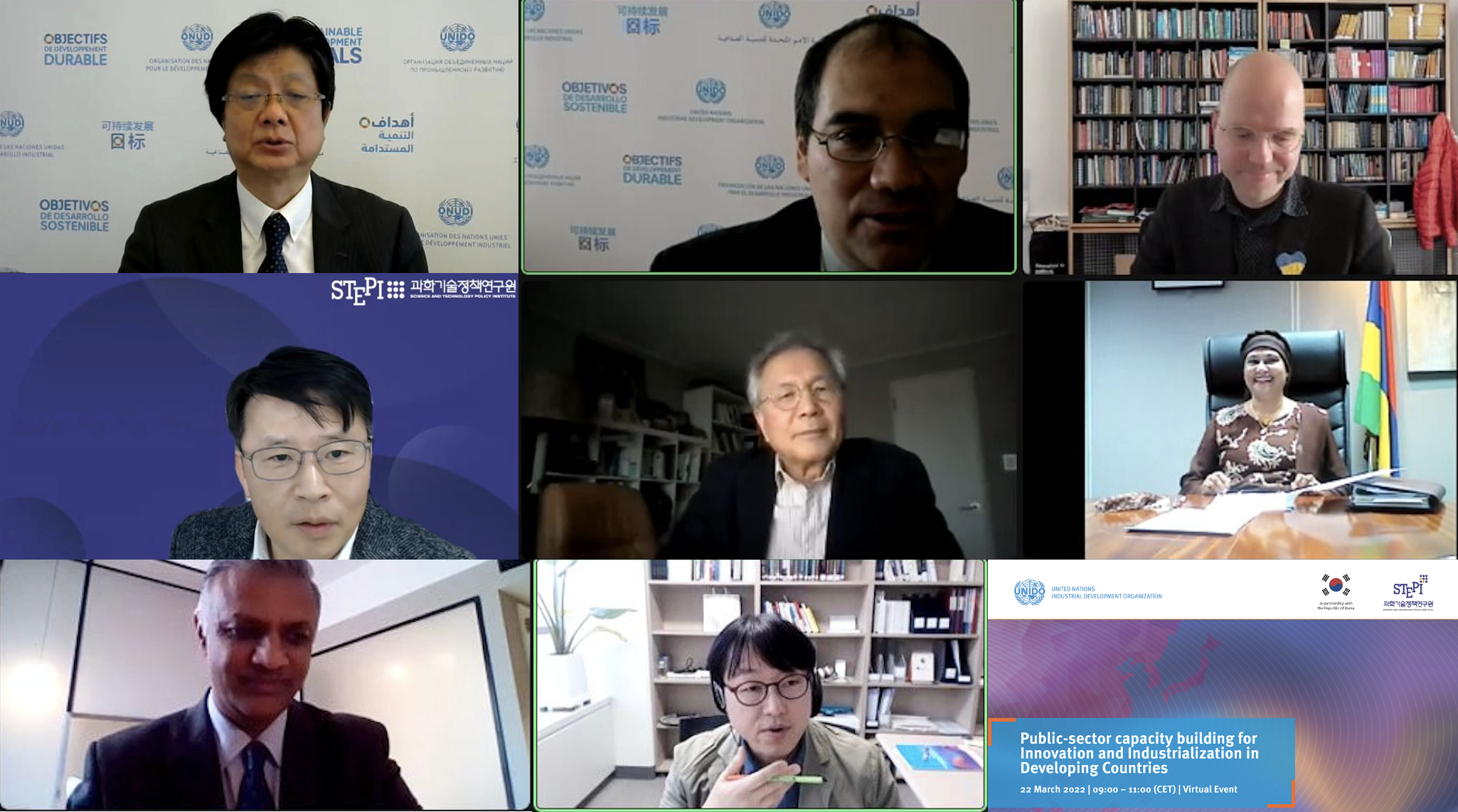Public capacities, bureaucrats: the often-understated enablers of industrial development
22 March 2022

VIENNA, 22 March 2022 – There is “strong evidence of the need to invest in policymaking capacities to foster science, technology and innovation, and industrial development”. With these words, Hiroshi Kuniyoshi, Deputy to the Director-General of the United Nations Industrial Development Organization (UNIDO) opened the webinar, ‘Public-sector capacity building for Innovation and Industrialization in Developing Countries’, organized by UNIDO, Korea’s Science and Technology Policy Institute (STEPI) and the Government of the Republic of Korea.
Hwanil Park, Director of the Division of Global Innovation Strategy Research at the STEPI, highlighted how the challenge of promoting inclusive and sustainable industrial development is inexorably linked to the need to enhance science, innovation and technology (STI) and industrial capacity.
Following the launch of the report, The role of science, technology, and innovation policies in the industrialization of developing countries: Lessons from East Asian Countries, the discussion addressed the importance of strengthening state capacities to promote STI. Speakers highlighted some of the principles for developing countries to successfully implement STI policies as drivers of industrialization:
- adopt a demand-driven approach throughout the process of industrial development;
- ensure a strong commitment to indigenous innovation efforts beginning with the technology internalization stage; and
- reflect on and adapt to changing environments.
The experts also stressed that it is imperative for governments from developing countries to play a more active role in addressing contemporary challenges - namely, digital transformation, climate change and deepening inequality.
Panellists also recognized that while a need for policy intervention is often mentioned as a condition for the success of any development project, ensuring the existence of strong public structures and capabilities is just as important. In this context, concrete experiences from developing countries shared during the event illustrated how STI can only be a driver of industrial development if states not only recognize its relevance in the policy agenda but also make an effort to implement policies to ensure its effectiveness. This may include investing in infrastructure, skills and research capacities, and in the constant training of its bureaucratic body.
Rainer Kattel, professor at the UCL Institute for Innovation and Public Purpose, stressed the importance of maintaining a well-prepared body of bureaucrats, able to provide stability in the long term, and ready to promptly implement changes in the short-term. For this purpose, governments need to enable dynamic capacities, which will allow them to introduce new ways of working and provide value to public practices and, thus, be more efficient in responding to challenges of a multifaceted nature.
More than 120 participants followed the ‘webinar via Zoom and contributed to the discussion with a range of interesting questions.
Presentations and other pertinent material used during the event are available here .
For more information, please contact:
Fernando Santiago, UNIDO
Email: f.santiagorodriguez@unido.org